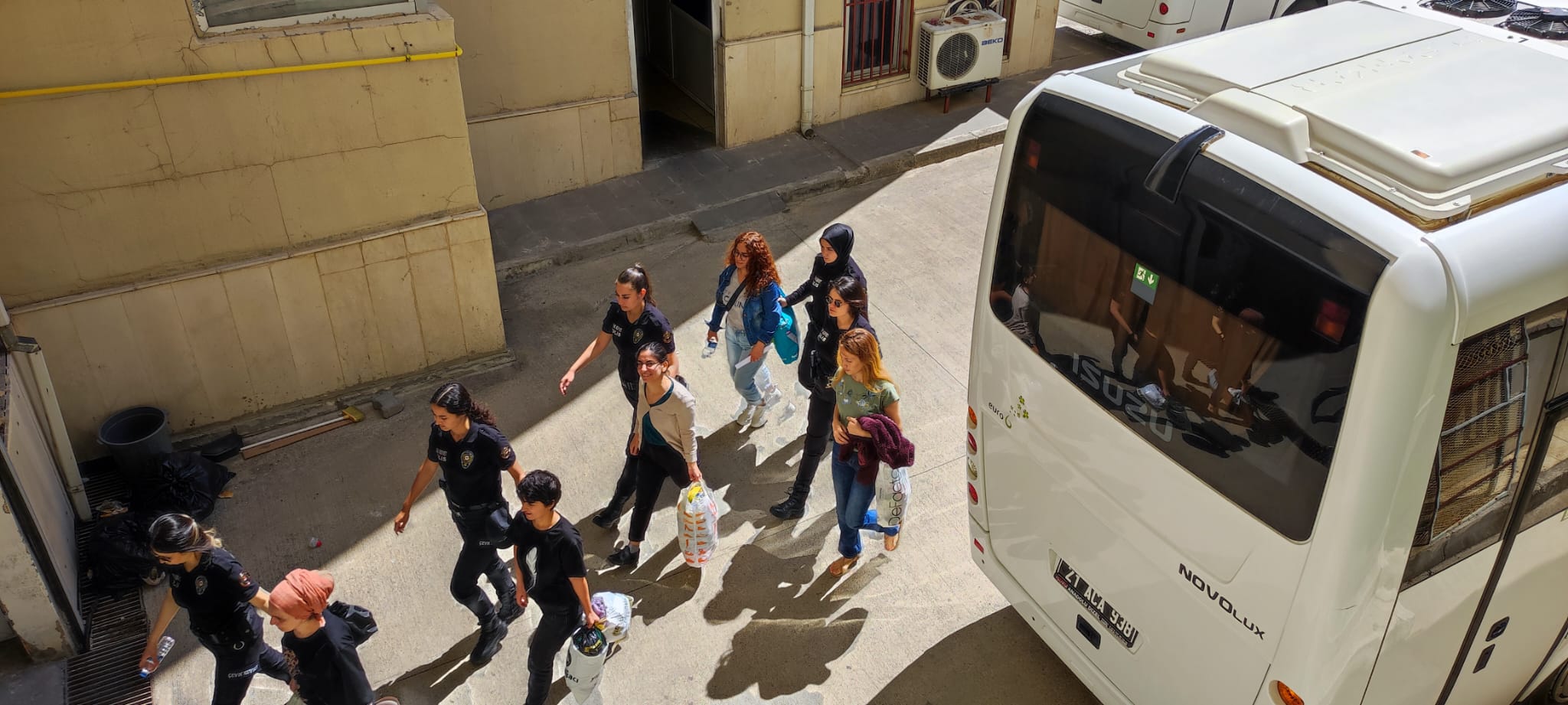In the name of counter-terrorism, police raided the houses of journalists in Diyarbakır, in the Kurdish region of Turkey, on 8 June. They took into custody 19 journalists, two media employees and one citizen, who had given an interview to a journalist. Two criminal investigations were announced to target “the Press Structure of the Kurdish Workers Party (PKK) and Kurdistan Communities Union (KCK)”.
Journalists who work in eastern Turkey face tremendous pressures as they are almost always the ones who expose rights violations by the state in a conflict between Turkish authorities and Kurdish groups, which has been going on since the early 1980s. The PKK has called for more rights for Kurdish people, and the armed conflict has cost over 40,000 lives. Turkey considers the PKK a terrorist organisation, as do the EU and US.
In addition to the journalists’ houses, police raided the offices of three production companies and the women’s news agency Jin News in an unlawful manner. The search conducted at the Jin News agency was carried out without any representative of the agency being notified or present. The police are yet to provide a record of what has been confiscated.
After being extended twice, the custody period eventually amounted to eight days. In her indictment-like extension petitions, the prosecutor directly accused the journalists without presenting any evidence. Furthermore, she justified the extensions by saying the confiscated material needed extensive examination. According to the lawyers, however, this long custody period served the manufacturing of new evidence.
The interrogation of the journalists began on 15 June at around 9am. The prosecutor questioned the journalists about their professional activities. She asked why they worked at their respective media outlets, why they produced particular programmes or news articles, and why they used specific expressions.
While neither the lawyers nor the journalists were granted access to the investigation file – which violated their right to defence – investigation details were leaked to media organisations close to the government. According to these news reports, journalists are accused of “operating as the PKK and KCK Press Structure.”
After an interrogation lasting nearly 20 hours, the prosecutor referred 18 journalists, two media employees and one citizen to the Diyarbakır 1st Criminal Judgeship of Peace and requested their arrest on suspicion of “membership of a terrorist organisation”. Within 15 minutes, the judge ruled to arrest 16 of the journalists. In the decisions, the judge did not refer to any concrete evidence other than the testimonies of defectors from the PKK who claimed that the journalists produced content for Sterk TV, Medya Haber TV, Jin TV and Rohani TV – all of which are considered as PKK outlets by Turkish authorities. The judge released four journalists, one media employee and the sole citizen from custody, along with judicial control measures.
This is not an isolated incident. A recent example is when five journalists reported on two villagers who were tortured and thrown out of a helicopter by security forces in Van, also in eastern Turkey. Four of them were held in pre-trial detention for six months until the first hearing. Accompanied with discrediting campaigns on social and mainstream media, these journalists were tried under terrorism charges and were eventually acquitted. Acquitted or not, this recent operation is the largest of its kind targeting the Kurdish press in recent years. It is reminiscent of the infamous “KCK Press Trials”, in which 46 journalists and media employees have been standing trial for the past 10 years.
This latest operation targeting Kurdish journalists signals that the government is once again flexing its muscles to silence journalists in the region ahead of the upcoming elections next year.
The 16 arrested journalists:
Lezgin Akdeniz: Camera operator, TV show producer
Safiye Alagaş: Jin News Director
Serdar Altan: Freelance journalist, Dicle Fırat Journalists’ Association (DFG) Co-chair
Zeynel Abidin Bulut: Xwebûn editor, DFG executive
Ömer Çelik: TV show host, former Mesopotamia News Agency editor
Suat Doğuhan: Camera operator, Pel Production owner
Mehmet Ali Ertaş: Xwebûn Editor-in-chief
Ramazan Geciken: Pel Production camera operator
Mazlum Doğan Güler: Piya Production camera operator
İbrahim Koyuncu: Camera operator, video editor
Abdurrahman Öncü: Pel Production camera operator
Aziz Oruç: Mesopotamia News Agency editor
Mehmet Şahin: Xwebûn columnist, teacher
Neşe Toprak: Pel Production TV show producer
Elif Üngür: Piya Production TV show host
Remziye Temel: Piya Production accountant
For more details on the arrests, visit MLSA.





